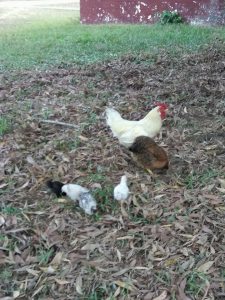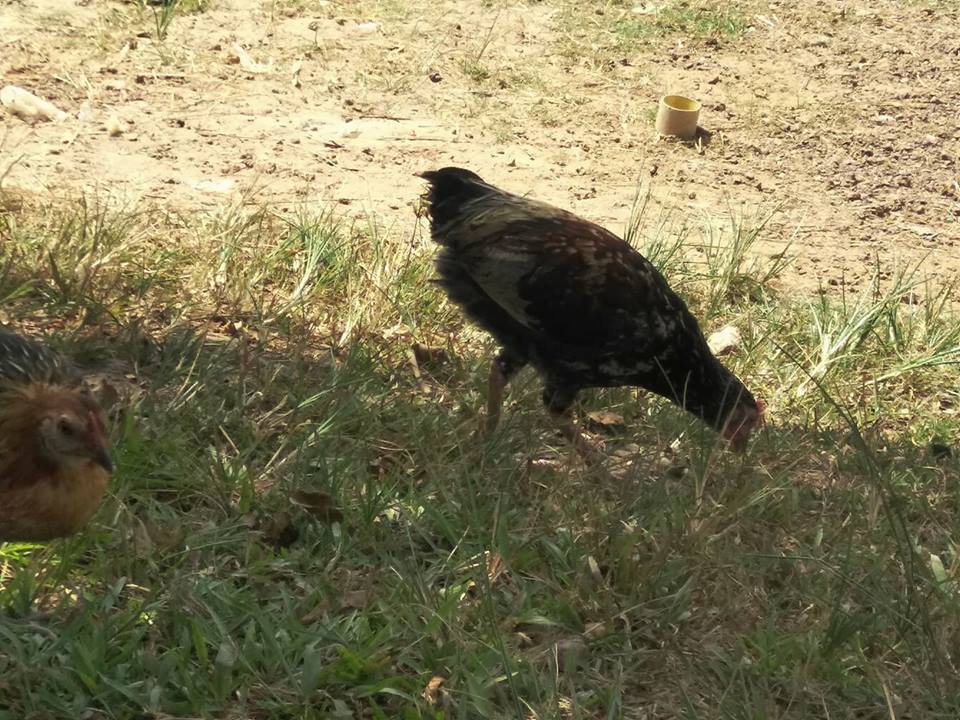Before I came to Liberia, so many people told me, “Oh, you are going to go there and gain such an appreciation for how good we have it here.” Or a variation of the sort. I’ve always carried that with me in the back of my mind accompanied by a snark, “you don’t quite get it.”
December 19, 2017, after five months in Liberia, I came home for Christmas with my family. I stepped out into the frigid temperatures that penetrated my skin after months of the sun kissed adventures of the tropics. The after-birth stained, manure covered coveralls did nothing to insulate my body. The air seemed crisper than I remembered. The now grown puppy that I had gotten the summer after my Freshman year of college greeted me at the mud room door. The calls for food rang out from critters of all kinds: goats, donkeys, sheep, llamas, chickens, and horses and I thought, “duty calls.” Two steps further, I saw my Dad’s chickens and I broke into utter tears.
People have often talked about reverse culture shock. After you have lived in a place (such as a developing country) for so long, going back to the United States can be a difficult adjustment and transition. Oftentimes, people have stories of moments when they experienced culture shock most in Wal-Mart food isles, a street lined with fast food restaurants, or buffet salad bars. However, only a true farm girl would cry at the sight of chickens.
You see my Dad has a poultry hobby. We have chickens, pheasants, quail, turkeys, pigeons, doves, guineas, and any other type of fowl you can find in the United States. In the past, I hated them because their poop was everywhere and it was far too easy to accidently stick my hand in when I least expected it. I asked him once why he liked them so much and he said “My Grandfather had a lot of fowl when I was growing up and now I just like having them around.” The fowl are a side project as one would call it and really have had no significant purpose besides the few meat chickens we have raised
I vaguely remember that around the time I left for Liberia he had hatched a group of chicks. I was busy and the fowl have always been my last concern on the farm. Now, 5 months later and grown, they are what made me cry. My Dad raised these “giant,” beautiful, and high-quality Lavender Orphington chickens. There were two roosters and about eight hens just clucking around the back yard. Standing tall, their beaks are up above my knee. They stood on stout legs and the roosters had at least 5 inch spurs. They had thick breasts which kept them planted firmly on the ground rather than in the air during my Australian Shepherd’s playful chase. Their size was obviously an outcome of genetics and a several bags of chicken scratch from the local Co-Op. I would say they had plenty of meat, but they were so beautiful I would never think of eating them. The hens all matched in perfect color and the rooster was a few shades darker. Every time I went to the barn for the remainder of my time home, I would stop and stare at them. I even mentioned that they should be entered in the Kentucky State Fair.
In Liberia, there are plenty of chickens that range in color, but a constant is that they are all fairly small. They eat whatever scraps or bugs they can find and rarely are the claim of a single owner. Often, a community’s chickens stay together and roam about. They are all mixed and matched from generations of breeding on their own and hatching amongst different genetics. There are a few white chickens that we would recognize as being laying hens or meat chickens, but they are neither stout made or prolific layers.
or bugs they can find and rarely are the claim of a single owner. Often, a community’s chickens stay together and roam about. They are all mixed and matched from generations of breeding on their own and hatching amongst different genetics. There are a few white chickens that we would recognize as being laying hens or meat chickens, but they are neither stout made or prolific layers.
My livestock judging history made me subconsciously keen on quality even though I tried to subdue it. Before this moment, I hadn’t realized how much the size and quality had really bothered me.
Living in a post-conflict third world nation in which we consistently rank poorly in corruption, literacy, and poverty has allowed for my heart to ache in ways it never has before. However, I feel confident that such ache will allow me to love and experience life in ways that I never have before.
 It is crazy to think that I have almost been here for 5 months. It feels like a lifetime. Time moves so much slower here than I was used to in the States. I am grateful for that. My time here has afforded me the ability to think about what is important, consider what my priorities should be, and analyze what they have been. Instead of having a color coordinated calendar with endless events to attend and places to be, things have slowed down a little. I have been able to sit on the porch and drink tea with my neighbors more nights than I can count. Most mornings, I can get up and take time to read without rushing off to meetings. I can walk to the market and spend time with the kiddos playing, “house” in the sand.
It is crazy to think that I have almost been here for 5 months. It feels like a lifetime. Time moves so much slower here than I was used to in the States. I am grateful for that. My time here has afforded me the ability to think about what is important, consider what my priorities should be, and analyze what they have been. Instead of having a color coordinated calendar with endless events to attend and places to be, things have slowed down a little. I have been able to sit on the porch and drink tea with my neighbors more nights than I can count. Most mornings, I can get up and take time to read without rushing off to meetings. I can walk to the market and spend time with the kiddos playing, “house” in the sand.
I’ve learned that I never used to appreciate things before AgriCorps. I observed things but I didn’t appreciate. Sure, I am grateful for things that I never was before. I’m grateful for the advancement in infrastructure, diversity in food, and electricity 24 hours a day. I’m grateful for a stable government, education system, and opportunities that I took for granted. However, now, more than being grateful for ideal accommodations or “how good we have it”, I am appreciative. In the slowness, I have learned to slow down and take things in and appreciate them. In gratitude we are thankful for what we have. But, appreciation does something to you. It allows one see the goodness, changes your heart, opens your eyes, and allows you to return the same kindness to the world.
Megan Harper is an Agricultural Economics graduate from the University of Kentucky. Before becoming an AgriCorps Fellow Megan was a Kentucky State FFA Officer.


